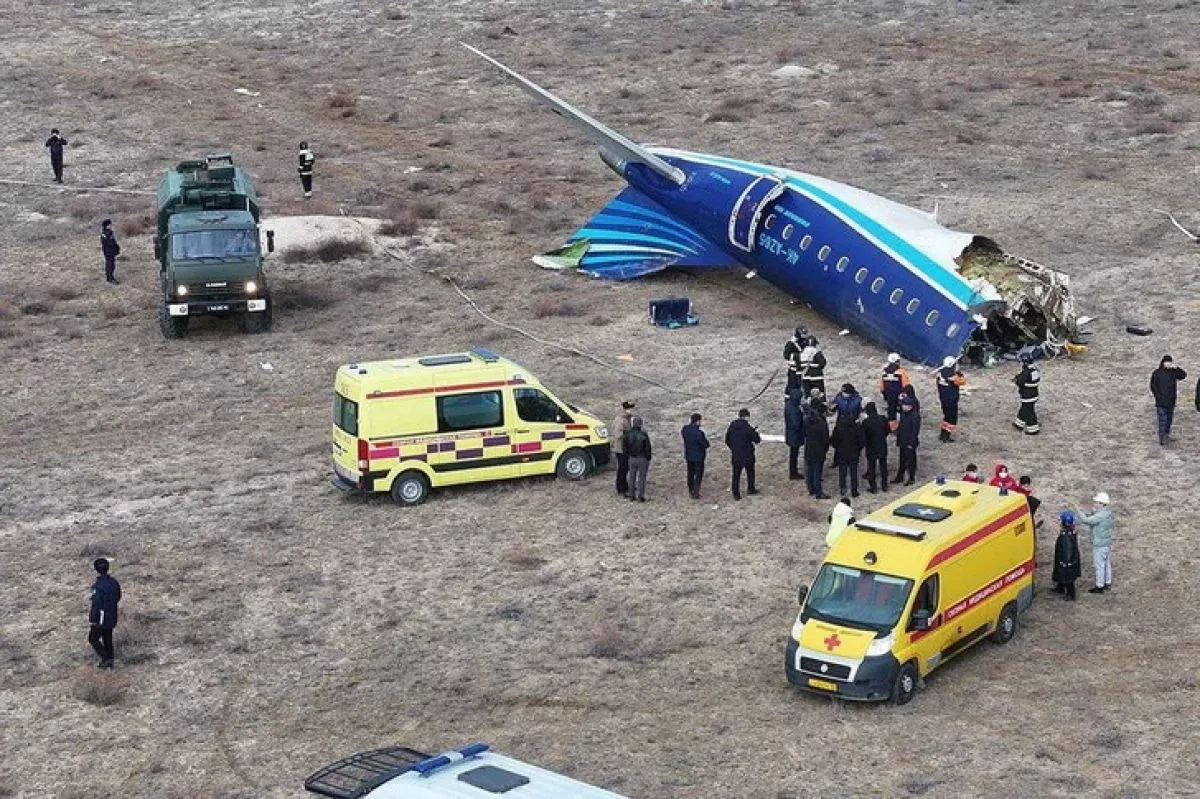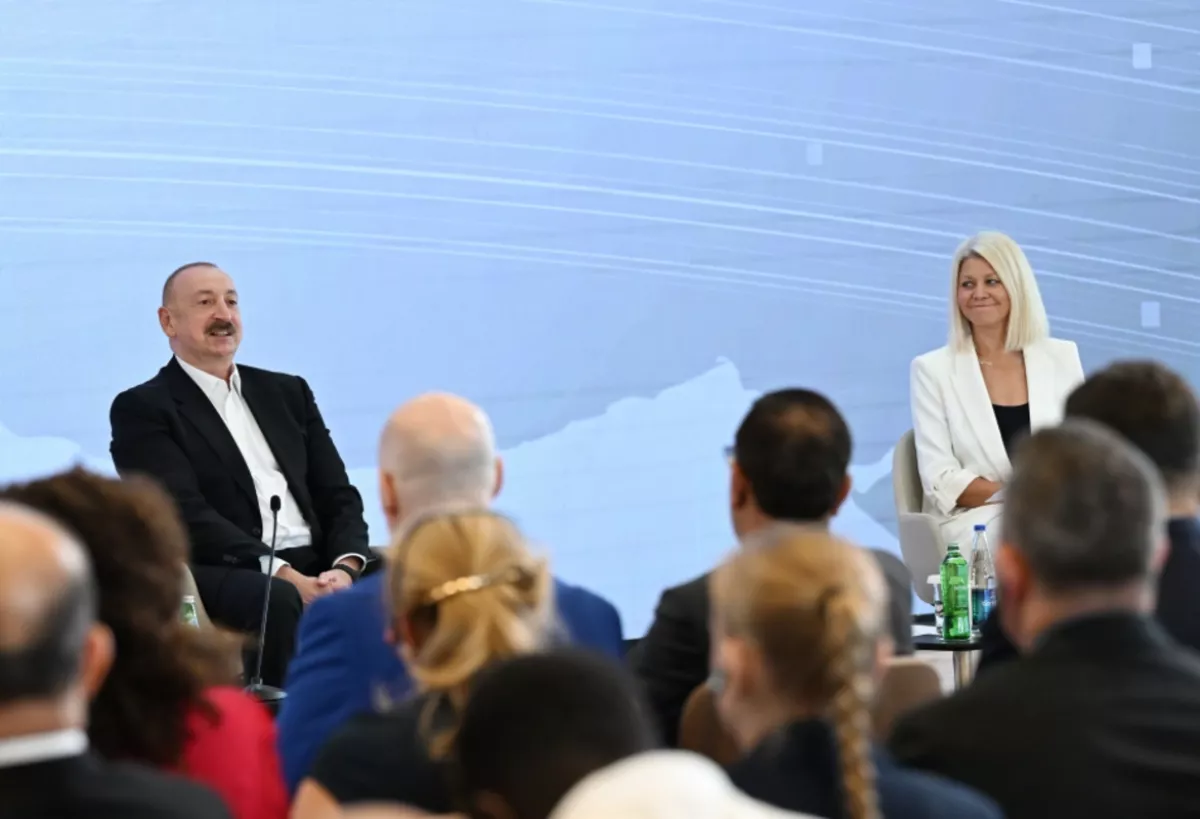Azerbaijan ready for tough response to Russia’s threats
In recent months, the Russian segment of social media, especially Telegram channels, has become the epicentre of an escalating campaign of aggressive rhetoric against Azerbaijan, where accusations of "anti-Russian sabotage" and "undermining stability" have grown into outright calls for military intervention.
Pro-Kremlin Telegram channels and so-called Z-bloggers are creating an atmosphere of hostility, accusing Baku of "supporting Ukraine," "ethnic separatism," and other "deadly sins."
This is not a spontaneous outbreak of discontent. It is a coordinated tool of information warfare, reflecting Moscow’s geopolitical interests in maintaining dominance over the post-Soviet space. In the context of global realignments, these attacks serve as a mechanism of pressure, disguised as public opinion but driven by elites closely linked to intelligence agencies.

The roots of the current escalation trace back to the events at the end of 2024, when the tragedy involving the Azerbaijan Airlines (AZAL) plane became a turning point in relations between Baku and Moscow. After the crash of the airliner that claimed dozens of lives, Azerbaijan, relying on facts, accused the Russian side of concealing the true causes of the disaster and deliberately spreading disinformation.
Tensions were further fueled by cyberattacks on Azerbaijani media outlets in February 2025, which Baku reasonably suspected to be carried out by Russian hacker groups closely linked to state structures. Taken together, these events have marked a new phase of information and hybrid warfare, aimed at forcing Azerbaijan to change its foreign policy course and to demonstrate its “vulnerability” under Russian pressure.

Next came a high-profile incident in Yekaterinburg in June 2025 — during large-scale raids targeting the Azerbaijani diaspora, two Azerbaijanis were brutally killed. Baku responded with maximum firmness — cancelling the visit of Russian Deputy Prime Minister Alexey Overchuk, suspending cultural exchanges, and intensifying diplomatic rhetoric. Pro-Kremlin channels interpreted these actions as a “provocation” and an “attempt at ethnic revenge.”
Beneath this lies geopolitics: Azerbaijan’s success in restoring its territorial integrity following the Second Karabakh War in 2020 and the counterterrorism operation in autumn 2023, along with its strengthening ties with Türkiye, the EU, and NATO, are seen by the Kremlin as an erosion of Russia’s influence in the South Caucasus.

Statements by Azerbaijani President Ilham Aliyev at the 3rd Shusha Global Media Forum, where he advised Ukraine to "never come to terms with occupation," became a new catalyst: Russian propagandists began openly threatening Azerbaijan. These narratives echo the rhetoric used against Ukraine and are spread through networks of bots and channels funded by structures close to the FSB and the GRU, turning Telegram into a tool of hybrid warfare.
These channels synchronise their narratives with statements from the Russian Ministry of Foreign Affairs, which describes Baku’s actions as an "emotional reaction" and includes threats of "retaliatory measures" against the diaspora and infrastructure. Possible pressure scenarios range from economic sanctions and boycotts of Azerbaijani goods to cyberattacks and calls for military provocations.
Against this backdrop, Azerbaijan’s position remains firm, pragmatic, and focused on prioritising national interests without yielding to pressure. As President Ilham Aliyev emphasised at the media forum in Khankendi, "the protection of national interests is a fundamental factor in Azerbaijan's foreign policy."
Baku is not afraid of threats and has no intention of justifying itself: the arrests of Russian influence agents in June were a response to "illegal financing," not an act of revenge. Azerbaijan makes it clear: dialogue is possible, but not under duress — it must be based on honest partnership.
Nevertheless, if the verbal aggression on social media escalates into direct military provocation, the consequences will be very serious. Escalation — from border incidents to full-scale conflict — risks drawing in Türkiye as an ally of Baku and potentially even wider global players, given Azerbaijan’s energy role. The country has the right to consider radical deterrence measures, including the deployment of a NATO base, for example, in the Khachmaz district, close to the Russian border. Such a step, relying on the longstanding partnership through the Individual Partnership Action Plan (IPAP), would become yet another measure in the defence of Azerbaijan.
To sum up: the campaign in Russian social media is a symptom of waning influence, where intimidation replaces diplomacy. Confident in its position and potential, Azerbaijan stands as a bastion of pragmatism. Defending national interests, it offers neighbours a path to mutually beneficial cooperation, but warns: it will defend its sovereignty by all means available. Those who stir the storm in the Russian Telegram segment must understand — the storm will spare not even its instigators.








